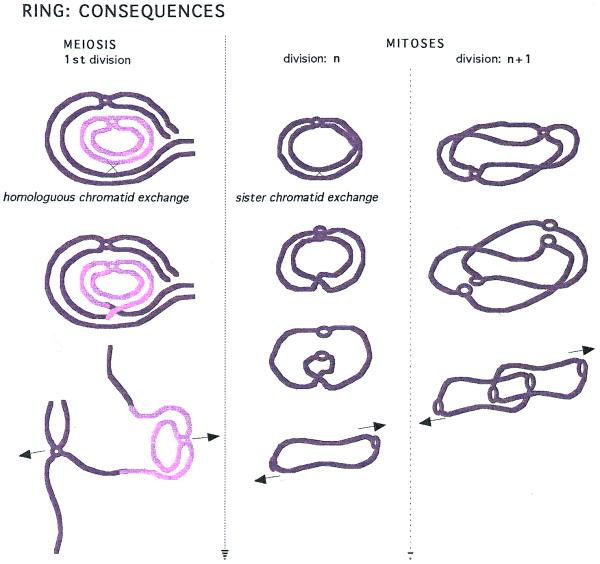Abstract
The ‘Atlas of Genetics and Cytogenetics in Oncology and Haematology’ (http://www.infobiogen.fr/services/chromcancer) is an Internet database aimed at genes involved in cancer, cytogenetics and clinical entities in cancer, and cancer-prone diseases. It presents information in concise and updated reviews (cards) or longer texts (deep insights), a (new) case report section, a huge portal towards genetics and/or cancer databases, and teaching items in genetics for students in medicine and the sciences. This database is made for and by clinicians and researchers in the above-mentioned fields, who are encouraged to contribute. It deals with cancer research, genomics and cytogenomics. It is at the crossroads of research, post-university teaching and telemedicine. The Atlas is available at no cost.
INTRODUCTION
The number of chromosome anomalies and genetic alterations in cancer is too vast for an individual to remember the clinical and biological characteristics of each, although they bear diagnostic and prognostic implications. It is therefore desirable that the medical and scientific community contributes to the storage of the necessary knowledge by reviewing each item, and updating the information. This is the purpose of the Atlas of Genetics and Cytogenetics in Oncology and Haematology (1) http://www.infobiogen.fr/services/chromcancer. It is an initiative from the Groupe Français de Cytogénétique Oncologique (GFCO).
SITE PRESENTATION AND PROGRESS
Cards
Cards on (i) genes, (ii) cytogenetic/clinical entities in hematology, in (iii) solid tumours and (iv) cancer prone diseases represent the body of the Atlas. Cards on genes include data on DNA/RNA, protein, mutations, and diseases where the gene is implicated. Cards on cytogenetic/clinical entities in haematology and cards on solid tumours include data on clinics, pathology, prognosis, cytogenetics, genes, hybrid gene and fusion protein. Cards on cancer-prone diseases include data on inheritance mode, phenotype, clinics, neoplastic risk, cytogenetics, genes and proteins, mutations. Each card also includes a bibliography with hyperlinks to MEDLINE and the main complementary databases. Cards are therefore both review articles and entrance points to the research network.
Deep insights/case reports
A more typical journal section is being upgraded. It includes ‘Deep Insights’ and soon a ‘Case Reports’ section. Deep insights are review articles concerning a specific subject; e.g. ‘Minimal residual disease in acute lymphoblastic leukemia’ (http://www.infobiogen.fr/services/chromcancer/Deep/MinResidDisID20007.html) ‘Ataxia-Telangiectasia and variants’ (http://www.infobiogen.fr/services/chromcancer/Deep/ATMID20006.html) or ‘Micronuclei: pitfalls and problems’ (http://www.infobiogen.fr/services/chromcancer/Deep/MicronucleiID20016.html). Clinical reports on cytogenetic anomalies in cancer are now rarely published per se, and the natural history of a disease may be lacking while the hybrid gene and the fusion protein are fully described. This case report section should remedy this lack.
Portal
We have produced and maintain a huge portal towards Internet databases, sites and journals devoted to genetics and/or cancer. This includes general links, links to genetic/cytogenetic and cancer resources, to genetic/cytogenetic mapping resources, maps by chromosome, probes, sequences and to structural and functional genomics–transcriptome databases. This is our contribution to the network. Reciprocally, we are referenced/hyperlinked by Human Genome Organization (HUGO), National Cancer Institute (CancerNet), International Union Against Cancer, GeneCards, Resources For Molecular Cytogenetics, Orphanet, Guide to Internet Resources for Cancer, Human Gene Mutation Database and Cancer GeneWeb.
Educational items
Educational items in Genetics are being developed as well (e.g. fig. 1, from the chapter on ‘Chromosomes abnormalities’; http://www.infobiogen.fr/services/chromcancer/IntroItems/PolyMecaEng.html). We are aware that some universities already use the available items. They are welcome to do so; they can also propose teaching texts or iconography.
Figure 1.
Educational items. Rings: mechanical problems at cell division, leading to fusion–fission cycle.
Other: links and network; iconography
We are developing fruitful collaborations with GeneCards (2) http://bioinfo.weizmann.ac.il/cards/, Resources for Molecular Cytogenetics http://www.biologia.uniba.it/rmc/, CancerGene http://caroll.vjf.inserm.fr/cancergene/, ImMunoGeneTics database (3) http://imgt.cines.fr:8104/ and various other participants in the Genome project. Iconography (Fig. 1) has been implanted: images of chromosome anomalies, FISH, pathology, X-rays, drawings of genes or protein structure enrich our texts and enlarge our knowledge to the neighbouring specialities.
COMMENTS
Contributions to the Atlas are reviewed before acceptance. A hundred collaborators have already contributed and more than 300 papers (cards, deep insights, etc.) are available. A number of contributions have already been updated. Some cards have been (or are being) further published in journals specialising in cancer genetics (4). More than 4000 individual machines have connected to us in August 2000.
Cards and Deep Insights are review articles; as such, they contribute to research and to post-university teaching. With the Educational section, we now add the university-teaching level. Our iconography of chromosomes participates in Telemedicine, as it can give diagnostic clues.
The fact that the Atlas is free will allow countries that are not highly developed to connect to it.
Contributions and collaborations are welcome as the task of covering the entire field under study is huge. It will serve the entire community of clinicians and researchers in these areas, and now, also, students in medicine or the sciences.
Acknowledgments
ACKNOWLEDGEMENTS
The Atlas of Genetics and Cytogenetics in Oncology and Haematology is funded by Ligue Nationale contre le Cancer, Comités de l’ Indre, de la Charente, et de la Vienne and benefits from INFOBIOGEN resources.
References
- 1.Huret J.L., Le Minor,S., Dorkeld,F., Dessen,P. and Bernheim,A. (2000) Atlas of Genetics and Cytogenetics in Oncology and Haematology, an interactive database. Nucleic Acids Res., 28, 349–351. [DOI] [PMC free article] [PubMed] [Google Scholar]
- 2.Rebhan M., Chalifa-Caspi,V., Prilusky,J. and Lancet,D. (1998) GeneCards: a novel functional genomics compendium with automatyed data mining and query reformulation support. Bioinformatics, 14, 656–664. [DOI] [PubMed] [Google Scholar]
- 3.Ruiz M., Giudicelli,V., Ginestoux,C., Stoehr,P., Robinson,J., Bodmer,J., Marsh,S.G.E., Bontrop,R., Lemaitre,M., Lefranc,G., Chaume,D. and Lefranc,M.P. (2000) IGMT, the international ImMunoGeneTics database. Nucleic Acids Res., 28, 219–221. Updated article in this issue: Nucleic Acids Res. (2001), 29, 207–209. [DOI] [PMC free article] [PubMed] [Google Scholar]
- 4.Huret J.L., Dessen,P., Le Minor,S. and Bernheim,A. (2000) The Atlas of Genetics and Cytogenetics in Oncology and Haematology on internet and a review on infant leukaemias. Cancer Genet. Cytogenet., 120, 155–159. [DOI] [PubMed] [Google Scholar]



